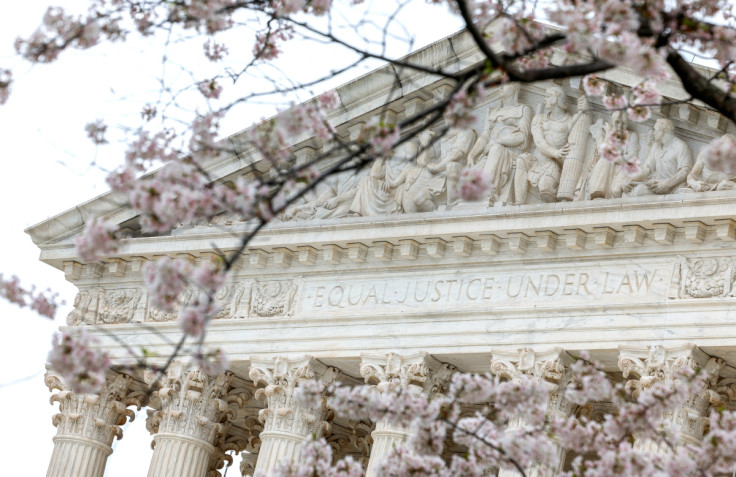U.S. Supreme Court Declines To Allow West Virginia Transgender Athlete Ban

The U.S. Supreme Court on Thursday refused to let West Virginia enforce a state law banning transgender athletes from female sports teams at public schools, one of many Republican-backed measures across the country targeting LGBTQ rights.
The justices denied West Virginia's request to lift an injunction against the law that a lower court had imposed while litigation continues over its legality in a challenge brought by a 12-year-old transgender girl, Becky Pepper-Jackson. Two conservative justices, Samuel Alito and Clarence Thomas, publicly dissented from the decision.
The law, passed in 2021, designates sports teams at public schools including universities according to "biological sex" and bars male students from female athletic teams "based solely on the individual's reproductive biology and genetics at birth."
In the lawsuit, Pepper-Jackson and her mother Heather argued that the law discriminates based on sex and transgender status in violation of the U.S. Constitution's 14th Amendment guarantee of equal protection under the law as well as the Title IX civil rights law that bars sex-based discrimination in education.
West Virginia said in a court filing that it can lawfully assign athletic teams by sex rather than gender identity "where biological differences between males and females are the very reason those separate teams exist."
West Virginia Attorney General Patrick Morrisey said he was "deeply disappointed" by the decision but predicted the state would ultimately prevail. "It's just basic fairness and common sense to not have biological males play in women's sports," he said.
"This was a baseless and cruel effort to keep Becky from where she belongs-playing alongside her peers as a teammate and as a friend," the American Civil Liberties Union and Lambda Legal, an LGBT legal group, said in a statement. The groups are representing Pepper-Jackson along with the Cooley law firm.
Pepper-Jackson, who attends a middle school in the West Virginia city of Bridgeport, sued after being prohibited from trying out for the girls' cross-country and track teams.
Republicans in various states have pursued a wave of laws directed at LGBT people - limiting transgender participation in sports, access to gender-affirming medical care, and the teaching of subjects related to gender identity or sexual orientation. A federal judge on Friday temporarily blocked a Tennessee law restricting drag performances in public.
The West Virginia case required the Supreme Court to confront the issue of transgender rights - a major front in the U.S. culture wars - in the wake of its 2020 ruling protecting gay and transgender employees under a longstanding federal law barring workplace discrimination.
U.S. District Judge Joseph Goodwin initially blocked the law, allowing Pepper-Jackson to participate on the teams. But but in January the judge reversed course, finding that the state measure was lawful.
The 4th Circuit subsequently issued an injunction while the case proceeds.
© Copyright Thomson Reuters {{Year}}. All rights reserved.





















